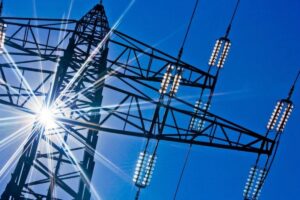
The National Energy and Utilities Regulatory Commission of Ukraine (NEURC) at a meeting on Wednesday limited the available capacity for importing electricity to Ukraine from states that are not parties to the Energy Community (Russia, Belarus) to 0 MW until October 1, 2021. “We take this decision on the initiative of Energy Minister Herman Haluschenko, who made such a request to us. At the same time, we remember our experience and this winter, and remember the balance of interests, because we also think about consumers and about that, theoretically, the termination of imports as a market mechanism can lead to abuses and manipulations in the market,” Chairman of NEURC Valeriy Tarasiuk said.
He did not rule out that NEURC will most likely continue limiting the throughput of power lines between Ukraine and Russia and Belarus after October 1.
The regulator decided to cancel the results of annual auctions at which the capacity for 2021 was allocated in terms of interstate relations between Ukraine and states that are not parties to the Energy Community (Russia and Belarus). The regulator also instructed the transmission system operator to reimburse the auction winners for the funds paid for the capacities allocated at the annual auctions.
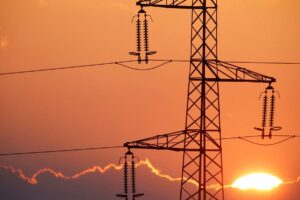
Electricity consumption in Ukraine, taking into account in-process losses in power grids, increased by 7.4% in January-April 2021 (by 3.742 billion kWh) compared to the same period in 2020, to 56.647 billion kWh, according to data from the Energy Ministry.
According to the calculations of Interfax-Ukraine, excluding in-process losses, electricity consumption for the specified period increased by 7.8% (by 3.203 billion kWh), to 44.27 billion kWh.
The country’s industry, excluding in-process losses, boosted electricity consumption by 6.2%, to 17.319 billion kWh. In particular, metallurgical industry consumed 9.355 billion kWh (3.8% more compared to January-April 2020), the fuel industry some 1.122 billion kWh (1.6% more), machine-building industry some 1.346 billion kWh (16.5% more), chemical and petrochemical some 1.463 billion kWh (10.5% more), food and processing some 1.406 billion kWh (0.7% more), building materials some 770.9 million kWh (18.2% more), others some 1.860 billion kWh (11.8% more).
In addition, agricultural enterprises consumed 1.211 billion kWh (6.1% more), transport some 2.176 million kWh (5.6% more), construction some 434 million kWh (25.4% more).
In January-April 2021, the country’s population consumed 14.593 billion kWh (9.3% more), households some 5.304 billion kWh (5.8% more), other non-industrial consumers some 2.990 billion (14.8% more).
According to the results of the first three months, the share of industry in the total volume of electricity consumption decreased from 40% to 39.3%, while the share of the population increased from 32.7% to 33.1%.
In April 2021, electricity consumption, taking into account in-process losses, increased by 9.7% (by 1. 89 billion kWh) compared to the same month of 2020, to 12.27 billion kWh, excluding in-process losses, by 12.2% (by 1.109 billion kWh), to 10.191 billion kWh.
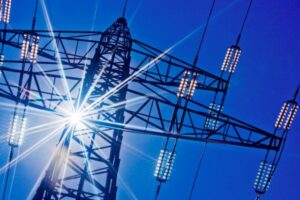
Electricity generation in the Integrated Power System of Ukraine in January-April 2021 increased by 5.8% (by 2.978 billion kWh), year-over-year, to 54.616 billion kWh, according to the Energy Ministry.
According to the calculations of Interfax-Ukraine, nuclear power plants (NPPs) have increased electricity generation by 0.4% in four months, to 29.7 billion kWh. In particular, electricity generation at Zaporizhia NPP amounted to 13.569 billion kWh (more by 22.5% compared to January-April 2020), Yuzhnoukrainsk NPP some 5.810 billion kWh (less by 24.2%), Rivne NPP some 5.32 billion kWh (less by 26.6%), Khmelnytsky NPP some 4.597 billion kWh (more by 39.5%).
Thermal power plants (TPPs), as well as combined heat and power plants (CHPPs) and cogeneration plants increased their output by 9.1%, to 18.39 billion kWh. In particular, TPPs increased generation by 15.9%, to 13.29 billion kWh, while CHPPs and cogeneration plants cut it by 5.2%, to 5.11 billion kWh.
Hydro power plants and pumped storage power plants increased generation by 60.9%, to 3.676 billion kWh, while block stations cut it by 6.5%, to 587 million kWh.
Electricity generation by alternative sources (wind farms, solar power plants, biomass) decreased by 0.1%, to 3.306 billion kWh.
The share of NPPs in the structure of electricity generation was 53.1% (55.9% in January-April 2020), TPPs, CHPPs and cogeneration plants some 33% (32%), hydro power plants and pumped storage power plants some 6.7% (4.4%), block stations some 1.1% (1.2%), alternative sources some 6.1% (6.4%).
In April 2021, electricity generation in Ukraine increased by 11.9% (by 1.342 billion kWh), year-over-year, to 12.607 billion kWh.
In addition, the supply of thermal energy in January-April 2021 increased by14.8% (by 1.608 million Gcal), year-over-year, to 12.450 million Gcal.
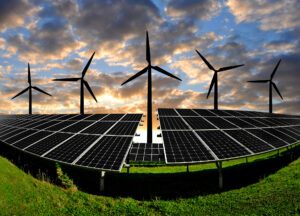
Ukrainian producers of electricity from renewable sources (RES) produced 222.6 million kWh in the period from April 5 to April 11, which is 17.2% more than the previous week, while electricity consumption in the country decreased by 0.9%, to 2.86 billion kWh.
According to the recent data of NPC Ukrenergo, the average daily electricity consumption on weekdays compared to the previous week decreased by 0.4% (to 416 million kWh), and on weekends by 2.2% (to 387.4 billion kWh).
Ukrenergo, in order to balance the power system in the face of surplus, on Saturday and Sunday of April 10 and April 11, gave dispatch commands to unload RES generation with a total capacity of 4,341 GW per two days.
“One of the main reasons for this was the decrease in electricity consumption during the specified weekend by 2.2% due to seasonal warming [from plus 5 degrees Celsius, on the weekend of the previous week to plus 8.8 degrees Celsius on April 10],” Ukrenergo said on its website.
According to the company, due to the warming, the volumes of electricity production by solar power plants and wind power plants have also significantly increased during the daytime, which accounts for the “decrease” of consumption. For example, on April 10 at 10:00, the RES capacity was 2.8 GW, while on weekdays in the same week it was 1.3 GW, and on the previous Saturday, April 3 it amounted to 2.1 GW.
“To balance the power system during periods of reduced consumption and at the same time intensive generation at solar and wind power plants, the dispatch center of Ukrenergo issued all possible commands for unloading, including at the request of manufacturers within the balancing market, and all available reserves have been used, except for RES producers. Also, all possibilities for increasing consumption by operating the pumped storage power plant in pumping mode have been exhausted, the limit volumes of imports in the Integrated Power System of Ukraine have been reduced to 0,” Ukrenergo said.

Electricity consumption in Ukraine, taking into account in-process losses in power grids, increased by 6.5% in January-March 2021 (by 2.591 billion kWh) compared to the same period in 2020, to 42.316 billion kWh, the Energy Ministry told Interfax-Ukraine.
Excluding in-process losses electricity consumption in January-March 2021 increased by 6.1% (by 1.934 billion kWh), to 33.675 billion kWh.
The country’s industry, excluding in-process losses, boosted electricity consumption by 3.5%, to 12.923 billion kWh. In particular, metallurgical industry consumed 6.99 billion kWh (2.5% more compared to January-March 2020), fuel industry some 854.8 million kWh (0.1% less), machine building industry some 1.021 billion kWh (9.9% more), chemical and petrochemical some 1.094 billion kWh (9.5% more), food and processing some 1.055 billion kWh (1.3% less), building materials some 532.5 million kWh (8.3% more), others some 1.376 billion kWh (4.6% more).
In addition, agricultural enterprises consumed 897.2 million kWh (6.1% more), transport some 1.662 billion kWh (1.8% less), developers some 329.9 million kWh (18% more).
In January-March 2021, the country’s population consumed 11.291 billion kWh (10.3% more), households some 4.217 billion kWh (3.2% more), other non-industrial consumers some 2.355 billion kWh (11% more).
According to the results of the first three months, the share of industry in the total volume of electricity consumption decreased from 39.3% to 38.4%, while the share of the population increased from 32.2% to 33.5%.
In March 2021, electricity consumption, taking into account in-process losses, increased by 10.3% (by 1.306 billion kWh) compared to the same months of 2020, to 13.997 billion kWh, excluding in-process losses, by 10% (by 1.018 billion kWh), to 11.168 billion kWh.
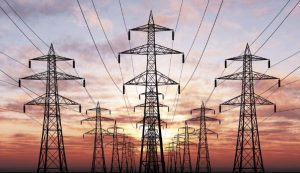
Ukraine in January 2021 reduced electricity exports by 92.6% (by 645.3 million kWh) compared to the same period in 2020, to 51.9 million kWh, according to the data of NPC Ukrenergo. According to the calculations of Interfax-Ukraine, in particular, supplies from the Burshtyn TPP energy island in the direction of Hungary, Slovakia and Romania fell by 89.7% (by 448.9 million kWh), to 51.9 million kWh.
Electricity was not supplied to Poland and Moldova last month, while in January last year, 151.2 million kWh and 45.2 million kWh were exported in these directions, respectively.
Ukrainian electricity also was not exported to Belarus and the Russian Federation in January 2021 and 2020.
In addition, in January 2021, Ukraine reduced electricity imports by 52.4% (by 292.4 million kWh) compared to the same period last year, to 268.3 million kWh, including Belarus supplied 180.6 million kWh, Slovakia – 78.3 million kWh, Hungary – 6.9 million kWh, and Romania – 2.5 million kWh.
In addition, as Inter-Transmission Compensation mechanism associated with the parallel operation of the IPS of Ukraine with the power systems of neighboring countries and power supply to dead-end areas, 6.26 million kWh of electricity was imported from the Russian Federation last month and 0.01 million kWh from Belarus.
Emergency supplies from Belarus amounted to 3.13 million kWh, and 0.08 million kWh to Belarus.